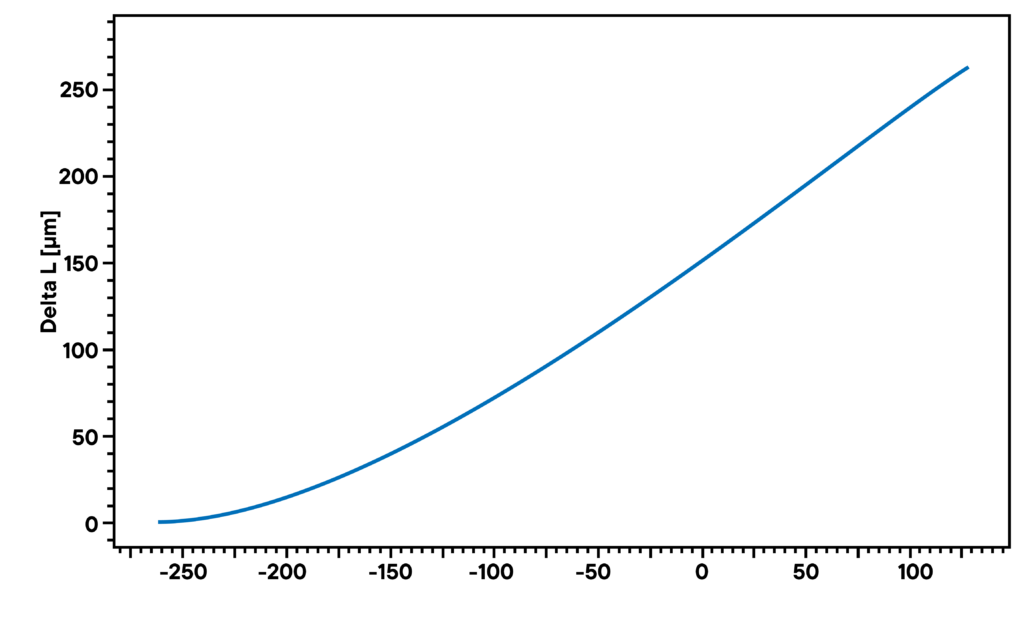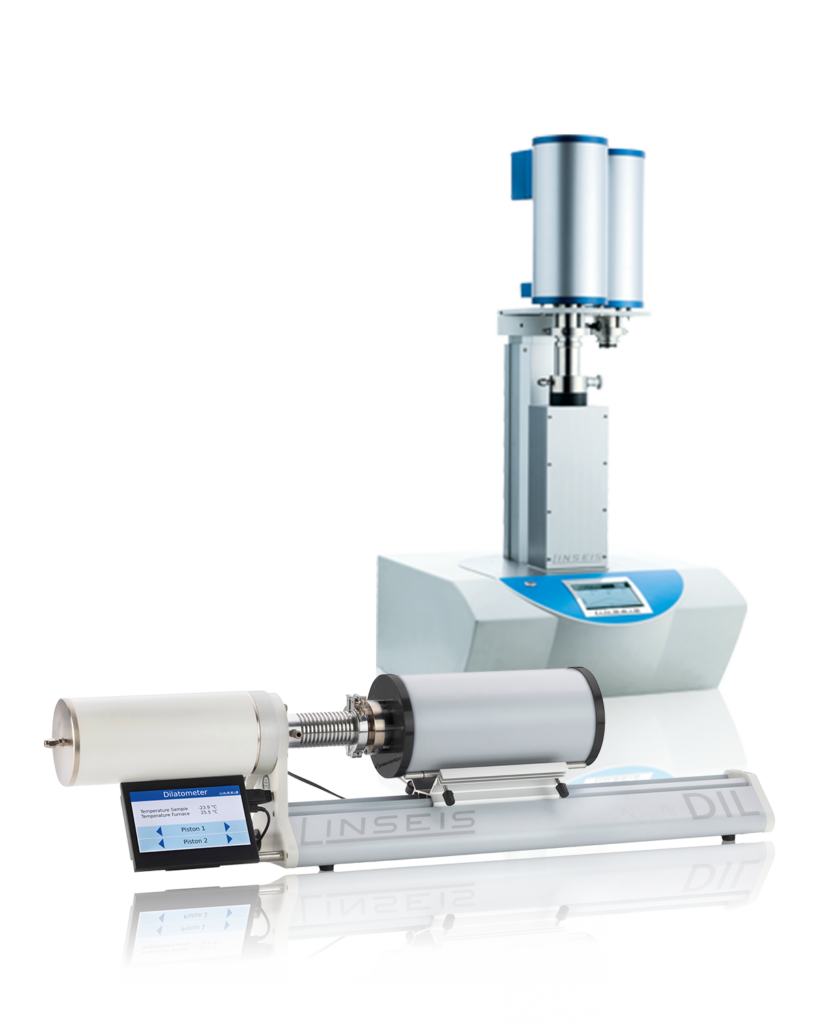Thermal analysis involves not only measurements at high temperatures, but also experiments at very low temperatures. There are many areas in which measurements at low or even extremely low temperatures are of interest. For example, in satellite technology and space travel or in quantum computers, the temperatures that the used materials must withstand are below 10 K (- 260°C).
Of course, thermal expansion, phase change and reactivity must be known in this range. For thermal expansion, the Linseis dilatometer series DIL L75 can be equipped with a helium cryostat in a closed circuit to enable measurements in the 10 K range.

In this example, a copper standard was measured with a Linseis DIL L75 Vertical CRYO dilatometer from 10 K to 400 K (-260°C to 125 °C). The sample was placed in the instrument, the sample chamber was evacuated and then the sample was cooled to 10 K at a controlled cooling rate, followed by the specified expansion measurement with controlled heating at 5 K/min.
As the curve shows, there is a zone of non-linear expansion between -260°C and -200°C, followed by linear expansion from -200°C to 125°C.

